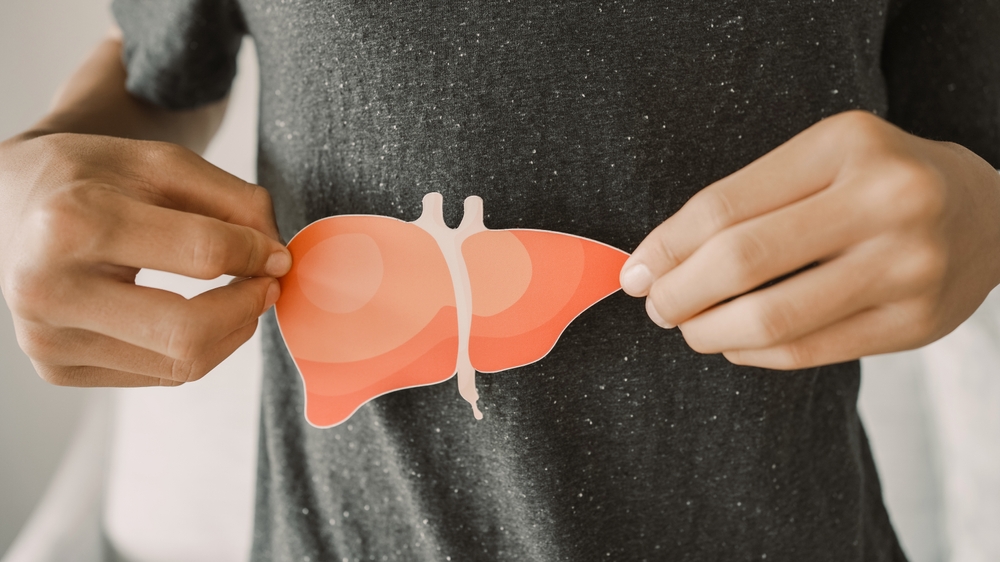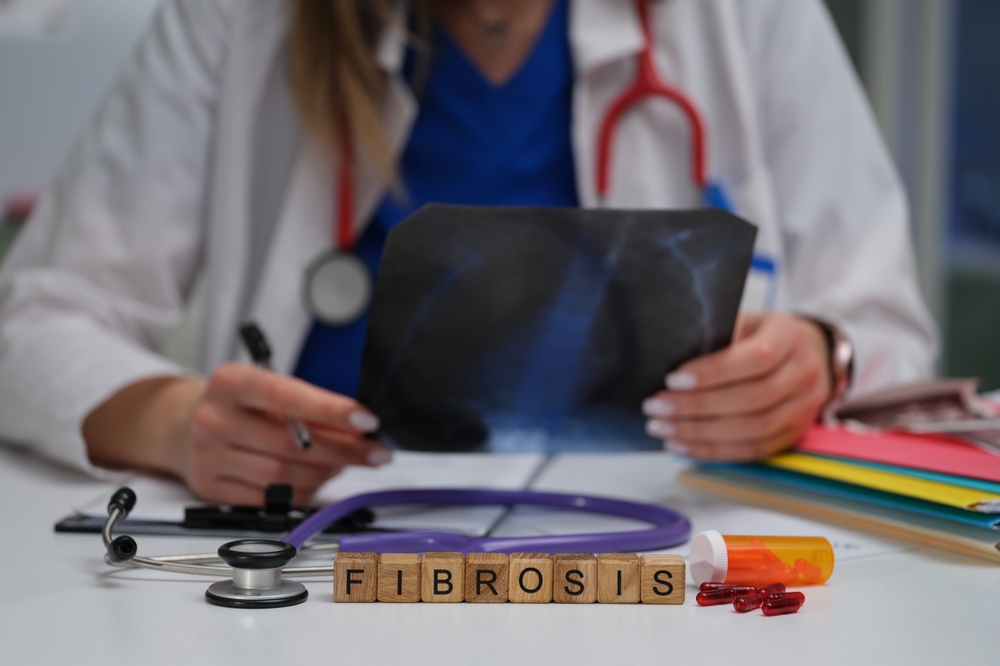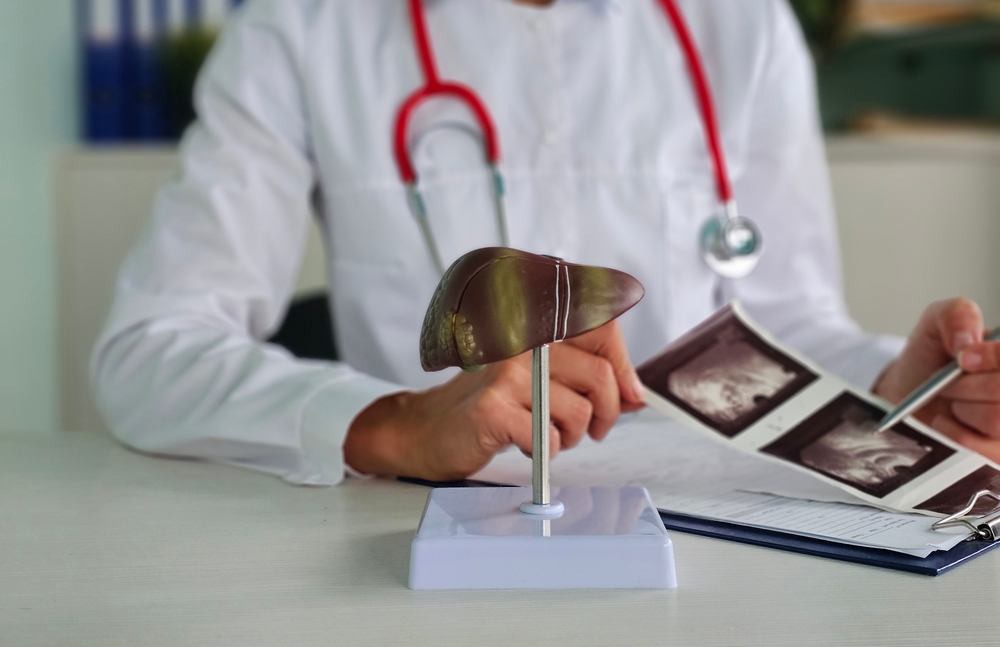
Written by:
Last Updated:
June 10th, 2025

Addiction to alcohol and drugs remains a serious health crisis in the UK, affecting not only mental and emotional well-being but also taking a considerable toll on physical health. Each year, thousands of people seek support to break free from substance dependence, whether through private rehabilitation centres like UKAT or via the NHS.
While recovery programmes often prioritise psychological healing and behavioural therapies, the physical damage caused by addiction can be just as profound. One of the organs most vulnerable to long-term alcohol or drug use is the liver, a vital organ responsible for detoxifying the body.
At UKAT, we believe in a holistic approach to recovery, which includes looking after your liver health. That’s why we’ve partnered with the NHS to trail Liver Health Checks using FibroScan technology at our Banbury Lodge clinic.
Understanding the Importance of Liver Health
The liver is often described as the body’s ‘chemical factory’, processing nutrients, metabolising substances, and breaking down toxins. When a person consumes alcohol or drugs regularly over a long period, the liver has to work overtime. This can lead to inflammation, scarring (fibrosis), and eventually permanent damage such as cirrhosis or liver failure.
The scary reality? Liver disease is often silent in its early stages. Many people don’t experience any symptoms until the damage is severe. That’s why early detection is key and why liver health assessments should be part of any serious addiction recovery plan.
What Is a Liver Health Check?
A Liver Health Check is a non-invasive test that helps assess the condition of your liver. It doesn’t involve blood tests or surgery. Instead, it utilises ultrasound-based technology to scan your liver and detect signs of stiffness or scarring, which are indicators of liver damage.
At UKAT, we are hoping to integrate this essential service into our rehab programme at Banbury Lodge in partnership with the NHS Liver Health Check Programme. This means all clients who book a treatment programme will be offered a free Liver Health Check as part of their stay.
What is FibroScan Technology?
The Liver Health Check at Banbury Lodge is conducted using FibroScan, a revolutionary tool in liver diagnostics. Also known as transient elastography, a FibroScan is a quick, painless, and highly accurate way of measuring liver stiffness.
Here’s how it works:
- You lie flat on your back with your right arm raised behind your head.
- A technician places a probe against your skin, just like an ultrasound.
- The device sends painless vibrations through your liver.
- It measures the speed at which the vibrations pass through the liver tissue.
- Slower waves indicate a healthy, supple liver; faster waves may suggest scarring or fibrosis.
The entire process takes about 10–15 minutes, and results are available almost immediately. There’s no need for fasting, needles, or hospitalisation. Best of all, it helps spot liver problems before symptoms appear.
Why Is FibroScanning Important for People in Rehab?
When someone enters rehab, it’s often after years of substance use. By this point, their liver may already be under significant stress or damaged. Unfortunately, liver problems don’t always show up in a person’s appearance or behaviour. Even if you feel physically fine, your liver could be suffering in silence.
Here’s why offering FibroScan in rehab is so valuable:
- Early detection: Identify liver issues before they become critical.
- Tailored care: Clinicians can adjust your recovery plan to include medical referrals or dietary changes based on your liver condition.
- Peace of mind: Knowing your liver is being monitored can provide reassurance during recovery.
- Education: Learn how lifestyle choices affect liver health, encouraging long-term wellness beyond rehab.
- Medication safety: Some detox medications, such as those used to manage withdrawal symptoms, are processed through the liver. By understanding your liver health upfront, we can make informed decisions about which medications to use or avoid, reducing the risk of complications during detox.
How Alcohol Impacts The Liver
Alcohol is processed primarily by the liver, which breaks it down into by-products your body can eliminate. However, excessive and prolonged drinking can overload this system, leading to:
- Fatty liver (steatosis): The earliest stage of liver damage. Often reversible with abstinence.
- Alcoholic hepatitis: Inflammation of the liver that can cause fever, jaundice, and pain.
- Fibrosis and cirrhosis: Scarring of liver tissue, which reduces function. Cirrhosis is often irreversible.
Statistics from the British Liver Trust show that alcohol-related liver disease accounts for 60% of all liver disease cases in the UK, and rates are rising.
How Drugs Impact the Liver
While alcohol is a well-known liver risk, certain drugs, both legal and illegal, can also damage the liver:
- Prescription opioids (e.g., codeine, oxycodone): May cause liver toxicity when taken in high doses.
- Illicit drugs (e.g., cocaine, ecstasy, heroin): Can cause liver inflammation or hepatitis.
- Injecting drugs: Raises the risk of blood-borne infections like Hepatitis B and C, both of which damage the liver over time.
- Paracetamol misuse: Common in polydrug use, high doses can be extremely toxic to the liver.
Who Should Get a Liver Health Check?
A liver health check is a simple but powerful way to understand how your body has been affected by substance use and to take informed steps towards healing.
Anyone with a history of regular alcohol consumption, recreational or prescription drug use, or a family history of liver disease should strongly consider having their liver assessed. Early detection of liver damage can make all the difference in long-term health and recovery outcomes.
This health check is especially recommended for people who:
- Have a history of heavy drinking or long-term substance misuse
- Are concerned about their liver health or have experienced symptoms such as fatigue, jaundice, or abdominal pain
- Have underlying health conditions like type 2 diabetes, high blood pressure, or obesity, all of which can increase the risk of liver complications
- Want to make informed decisions about their recovery and overall wellbeing
Taking this step can provide reassurance, identify silent issues early, and reinforce a commitment to lasting recovery.
What Happens If the Scan Shows a Problem?
If your FibroScan results suggest potential liver damage, it’s completely natural to feel concerned but try not to panic. This is exactly why early screening is so vital. Spotting issues before symptoms appear gives you a powerful head start in managing and potentially reversing liver disease.
Your results will be explained to you clearly, with any questions answered, as we guide you through a personalised care plan. Depending on your results, the next steps may include:
- Referral to a specialist – You may be referred to a hepatologist (a doctor who specialises in liver conditions) for a more detailed assessment. They’ll help pinpoint the stage and cause of any damage, whether it’s due to alcohol, fatty liver disease, hepatitis, or another condition.
- Further investigations – To get a fuller picture of your liver health, additional tests may be recommended. These could include blood tests to assess liver enzymes and function or imaging scans such as an ultrasound or MRI to visualise the liver more closely.
- Lifestyle and dietary changes – If liver damage is present, taking action early can make a significant difference. You may be advised to adopt a liver-friendly diet, reduce alcohol intake (or eliminate it entirely), manage weight, and introduce gentle physical activity. All of which help relieve pressure on the liver and promote healing.
- Treatment of underlying causes – In some cases, the damage may be linked to an underlying condition, such as viral hepatitis or non-alcoholic fatty liver disease (NAFLD). Treating the root cause is essential to stop further progression and begin recovery.
- Ongoing monitoring and support – Liver conditions can evolve over time, so regular follow-ups are important. You’ll likely have to repeat FibroScans or blood tests at intervals to monitor progress and adapt your care plan as needed. Any NHS treatment that arises from the FibroScan can be done in parallel to rehab, and continued afterwards.
The key takeaway? Early detection is your best defence. Liver disease is often silent in its early stages, but if caught soon enough, it’s frequently manageable and, in some cases, entirely reversible. With the right support, expert care, and a proactive approach, you can protect your liver, restore your health, and significantly improve your long-term wellbeing.
The Right Step Towards Recovery
Addiction recovery is about more than just stopping use. It’s about healing the body and mind. By introducing the Liver Health Check with FibroScan at Banbury Lodge, UKAT is taking a step in prioritising our clients’ whole-body wellness.
This quick, painless test could make a life-saving difference for someone in recovery. It’s another example of how UKAT is leading the way in comprehensive, compassionate addiction treatment.
If you or a loved one is curious to find out more, speak to our admissions team today and learn more about the initiative and what that could mean for your journey to recovery.




